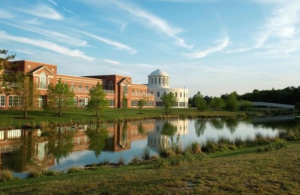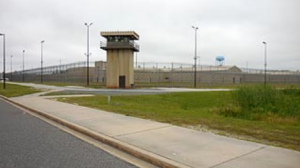Natural Gas is a Cleaner Cost-Effective Energy Source Fueling Economic Growth in Maryland
The Maryland Energy Administration is pleased to announce the first set of grant winners for the Maryland Energy Infrastructure Program (MEIP), Anchor Customer program. Grants of $1,502,242 dollars have been awarded to a commercial organization in Baltimore City and two state government organizations in Somerset County. The expansion of natural gas means more local jobs which Governor Hogan cited as a priority for the state. Based on a 2016 study by Towson University, the construction of this energy project will support over 700 jobs on Maryland’s Lower Eastern Shore alone.
MEIP debuted last fall, and was designed to assist with energy projects that promote natural gas distribution via equipment conversion or connection to natural gas infrastructure. Natural gas is cleaner, safer, and easier to store than other fuels. Unlike electricity, natural gas is unlikely to be knocked out by a storm or rationed when demand is high. For many organizations, the cost for converting to natural gas is costly but the savings realized can create new economic opportunities like job growth. Learn more about the grantees below.
Harvest Fare Wabash Markets of Maryland, Inc. is a full-service grocery store located in a previous food desert in Baltimore City. Harvest Fare Wabash employs 102 employees, 96 of the employees live near the store. Harvest Fare Wabash will convert to natural gas with a $152,242 grant and upgrade their existing three rooftop 50-ton heat pumps to a gas furnace heating and direct expansion cooling unit. Harvest Fare Wabash is the supermarket chain’s third location in Maryland, it joins other Harvest Fare supermarkets in Hamilton and Fallston. According to a report completed by the Weidt Group, prepared for Baltimore Gas and Electric, Wabash Markets will save an estimated $175,561 per year in energy savings with this upgrade.
University of Maryland Eastern Shore (UMES) plans to use their $800,000 grant from MEA to upgrade heating operations to natural gas. The UMES facility currently uses heating oil. Converting to natural gas will reduce their greenhouse gas emissions by approximately 500 tons per year, displacing the equivalent of over 2,800,843 gallons of gasoline or 5,285 passenger vehicles driven for one year. This conversion will reduce annual fuel costs by half, saving $700,000 a year and allowing this historically black college and university (HBCU) to reinvest in its students. Additionally the following pollutants will be reduced: sulfur oxide (SOx) emissions by 90%, nitrogen oxide (NOx) emissions by 59%, carbon dioxide (CO2) emissions by 25%, and methane (CH4) emission by 65%. UMES was established in 1890 via a land grant and is a university in Somerset county.
Also located in Somerset county, Eastern Correctional Institute (ECI) will use their $550,000 grant to upgrade the facility’s 30-year old wood-fired boiler. The conversion is expected to increase the boiler efficiency by approximately 18% and will reduce long-term operational costs. Natural gas produces fewer greenhouse gas (GHG) emissions like CO2, NOx and CO, and far fewer particulates than the previous heating system that burned 50,000 tons of debarked wood chips annually. Additionally, the switch from wood chips to natural gas increases competition among fuel suppliers which will keep costs down. ECI is expected to use over 467,500 dekatherms per year of gas. The decreased pollution levels from the project are equivalent to removing over 5,200 passenger vehicles from the road for one year. Establishing ECI as an anchor will enable other potential customers in the area to benefit from access to gas infrastructure and the associated cost and emission savings benefits. This project will be overseen by the Maryland Environmental Services (MES).
Information about additional 2020 Maryland Energy Infrastructure Program (MEIP) awards will be released in the coming weeks. Visit the grant website here for program specifics.




 1-888-373-7888
1-888-373-7888 233733
233733